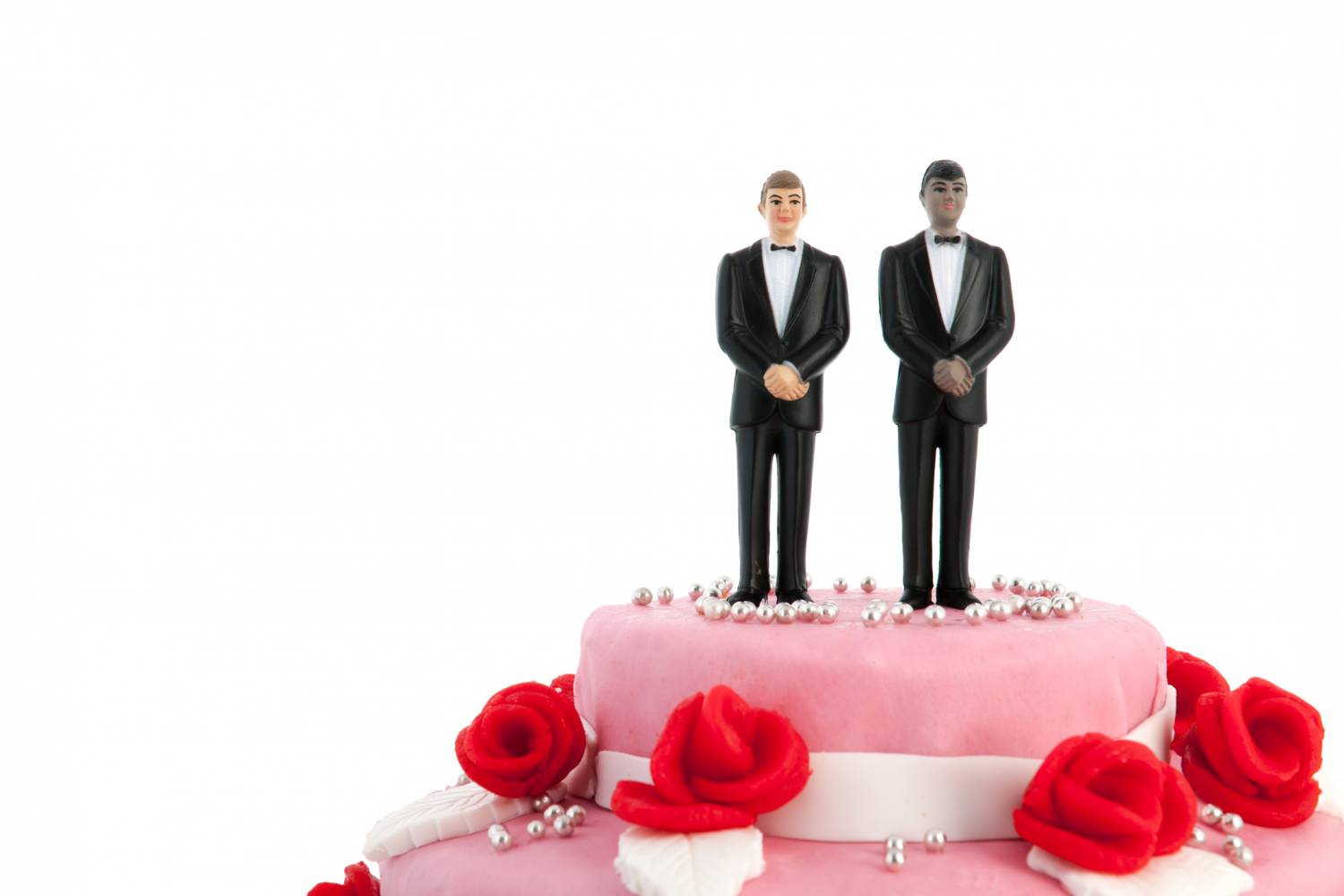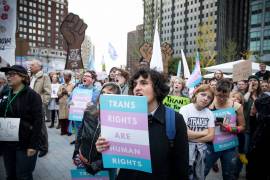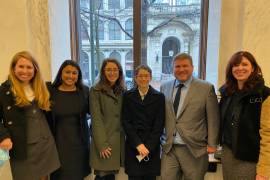Today, the U.S. Supreme Court announced it has granted review in Masterpiece Cakeshop v. Colorado Civil Rights Commission – the Colorado case involving a Denver bakery that cited religious beliefs and refused to sell a wedding cake to a gay couple contrary to Colorado’s civil rights law.
Lambda Legal submitted a friend-of-the-court brief in the case for Lambda Legal, One Colorado and One Colorado Education Fund, with assistance from John McHugh and Anthony Giacomini of the Denver-based firm Reilly Pozner LLP.
From wedding cakes and flowers to haircuts and lodging, we are seeing some business owners claiming religious rights to turn away LGBT people, ignoring that the public marketplace must be open to everyone regardless of anyone’s religious beliefs. Legal arguments trying to win new religious rights to reject customers easily can open the floodgates of religiously motivated discrimination.
This case is about a same-sex couple and baked goods, but its implications are far reaching because religious beliefs vary widely.
What if medical professionals decide for religious reasons not to care for a pregnant woman because she isn’t married? Or, if an employer believes that men should be the head of the household and so pays men more than women? Or if a landlord believes that gender is determined at birth and its expression must never change, and so refuses to rent to transgender people?
Courts that have considered the arguments pressed by the bakery in this case consistently have come to the same conclusion: the Constitution does not give anyone the right to harm others based on religious beliefs. And laws requiring business people to follow civil rights laws when selling goods or services do not violate free speech rights. These basic principles have been settled for decades and we hope this Supreme Court will reaffirm them without creating anti-LGBT exceptions.
This case actually involves the exact concerns that Lambda Legal raised during the confirmation hearings for newly-installed Supreme Court Justice Neil Gorsuch about his Court of Appeals opinion in the Hobby Lobby case, in which he ignored Supreme Court precedent and catered to the religious beliefs of employers, trumping federal law and not even acknowledging the harmful impacts on workers.
Masterpiece Cakeshop v. Colorado Civil Rights Commission is the appeal of a 2012 case brought by the American Civil Liberties Union against the Denver-based bakery on behalf of David Mullins and Charlie Craig, a gay couple who sought to purchase a cake for their wedding reception.
At that time, Cakeshop owner Jack Phillips, informed them that because of his religious beliefs the store’s policy was to deny service to customers who wished to order baked goods to celebrate a same-sex couple’s wedding.
Acting on complaints filed by Mullins and Craig, the Colorado Civil Rights pision determined that Cakeshop had violated Colorado law prohibiting public accommodations from refusing service based on factors such as race, sex, marital status or sexual orientation. That ruling was affirmed by a Colorado Administrative Court judge, the Colorado Civil Rights Commission and, in August, 2015, by the Colorado Court of Appeals.
After the Colorado Supreme Court declined to hear the case, Cakeshop asked the U.S. Supreme Court to grant review, which it has just done.





